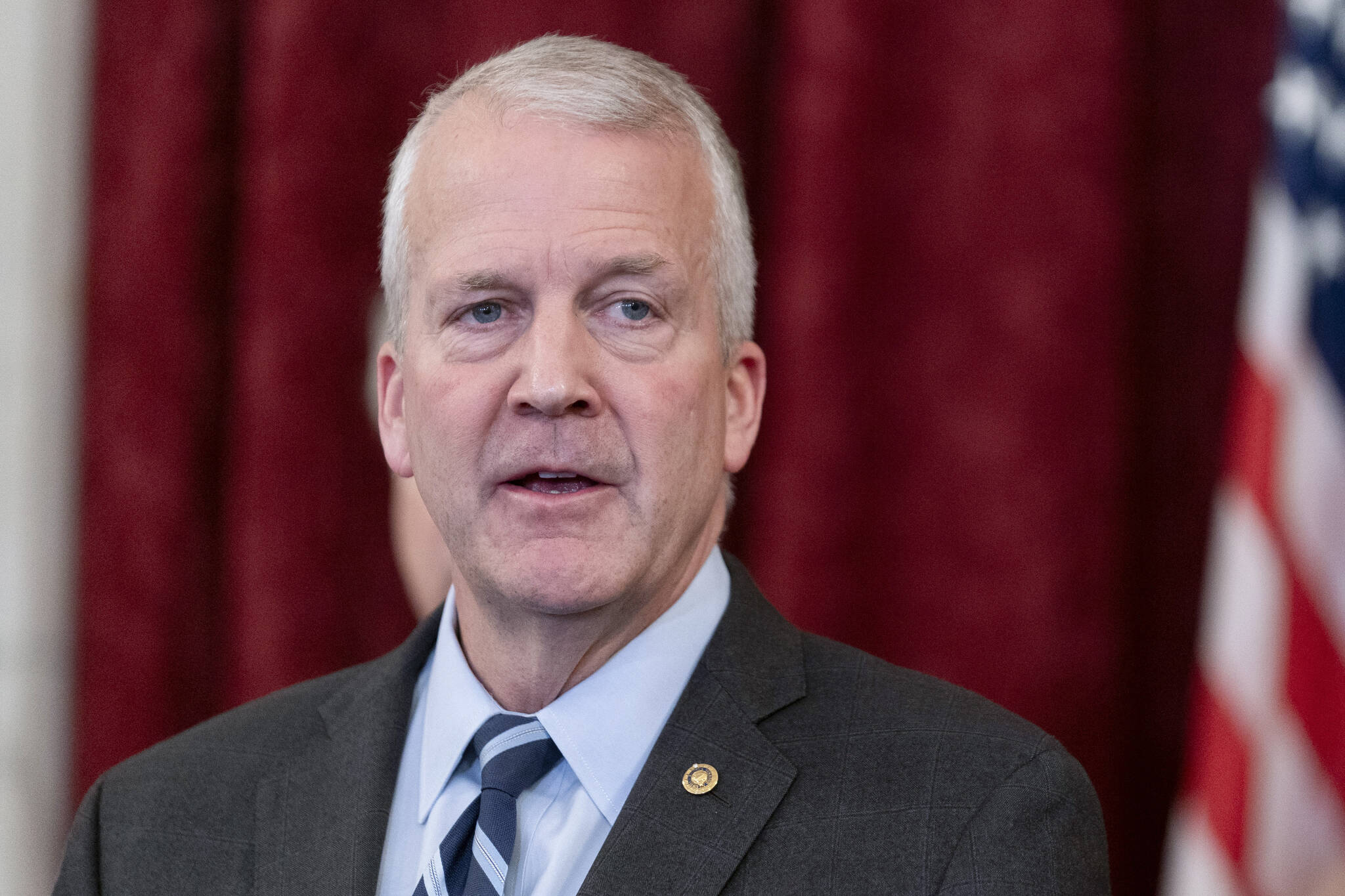Rather than submit nominations for federal judge positions by the method that’s been used for years, Sen. Dan Sullivan created the Alaska Federal Judiciary Council last month. The purpose of the nine-member body, who were all selected by him alone, is to help identify “federal judiciary candidates of character, experience, and an unflinching commitment to the rule of law.”
But when it comes to the rule of law in cases involving former president Donald Trump, Sullivan has been a model of unflinching cowardice.
For years, at the request of Alaska’s senators, the Alaska Bar Association put out calls for applicants to fill federal judicial vacancies. They polled its membership and submitted the four who ranked the highest. Sullivan’s statement suggests that he thinks some judges who were nominated and confirmed through that process don’t adequately respect the rule of law.
That’s insulting coming from a partisan official who has refused to take an affirmative stand against Trump’s baseless and never-ending claims of election fraud. Especially now that it’s resulted in two criminal indictments.
Sullivan has conveniently avoided commenting on those too.
In the Georgia case, Trump and 18 others are accused of conspiring to illegally reverse the state’s presidential election results. When they were arraigned last month, they all entered not guilty pleas. However, in the past week, three lawyers who represented his campaign reversed course and pleaded guilty.
Kenneth Chesbro was involved in the plot to send fake electors to Congress to disrupt certification of the election on Jan. 6. It’s conceivable he recognized that evidence undermining his claim of innocence might be found among his communications with the Trump campaign. He sought to prevent prosecutors from examining any of it. However, the judge ruled that some which involved the possible commission of a crime are exempt from the attorney-client privilege.
Last Friday, Chesbro pled guilty on one of the charges. And he agreed to testify as a witness for the prosecution.
Jenna Ellis also became a witness for the prosecution after pleading guilty on Monday. She admitted to intentionally aiding and abetting two other Trump lawyers by ”knowingly, willfully, and unlawfully” making false statements to members of the Georgia Senate during a Senate Judiciary Subcommittee hearing. Their goal was to convince the senators to reject certification of the state’s presidential election results.
A month later, Trump made similar false allegations in a phone call in which he infamously begged the Georgia Secretary of State “to find 11,780 votes.” That was one more than the amount he lost by. “And the real truth” Trump claimed during the call, “is I won by 400,000 votes. At least.”
Now he’s admitting that wasn’t true. It was only an opinion.
In a motion filed this week asking for the charges against Trump to be dismissed, his lawyers argued that the claims of widespread election fraud he made in 2020 were related “to a widely disputed historical, social, and political question” that isn’t “readily verifiable or falsifiable.” That’s why Americans’ opinions on the election outcome are “profoundly divided, very much to this day.”
However, that argument also means he was lying every time he said he had proof of widespread election fraud.
For instance, in November 2020 he tweeted “In Detroit, there are FAR MORE VOTERS THAN PEOPLE.” And he stated “Democrats cheated big time,” implying there was evidence because “they got caught.”
And “we have massive proof, in the Pennsylvania case. Some people just don’t want to see it.”
He made similar allegations that were readily proven to be false in Wisconsin, Arizona and of course in Georgia. Even today, he continues to spout easily disproven cries of fraud.
But his lawyers won’t let him make such arguments because in court the real truth and real evidence matter.
With new evidence of the illegal scheme to overturn the election being revealed almost weekly, and his near constant verbal assaults on the judiciary, every prospective federal judge in Alaska must recognize that Trump is the antithesis to the rule of law.
Meanwhile, Sullivan continues to ignore the facts and hide from the truth. And his failure to condemn the ways in which Trump is undermining trust in America’s judicial system suggests his show of respect for rule of law is nothing but rank cynicism.
• Rich Moniak is a Juneau resident and retired civil engineer with more than 25 years of experience working in the public sector. Columns, My Turns and Letters to the Editor represent the view of the author, not the view of the Juneau Empire. Have something to say? Here’s how to submit a My Turn or letter.

